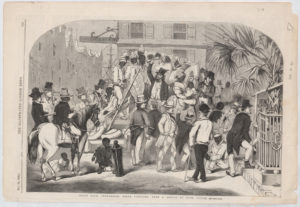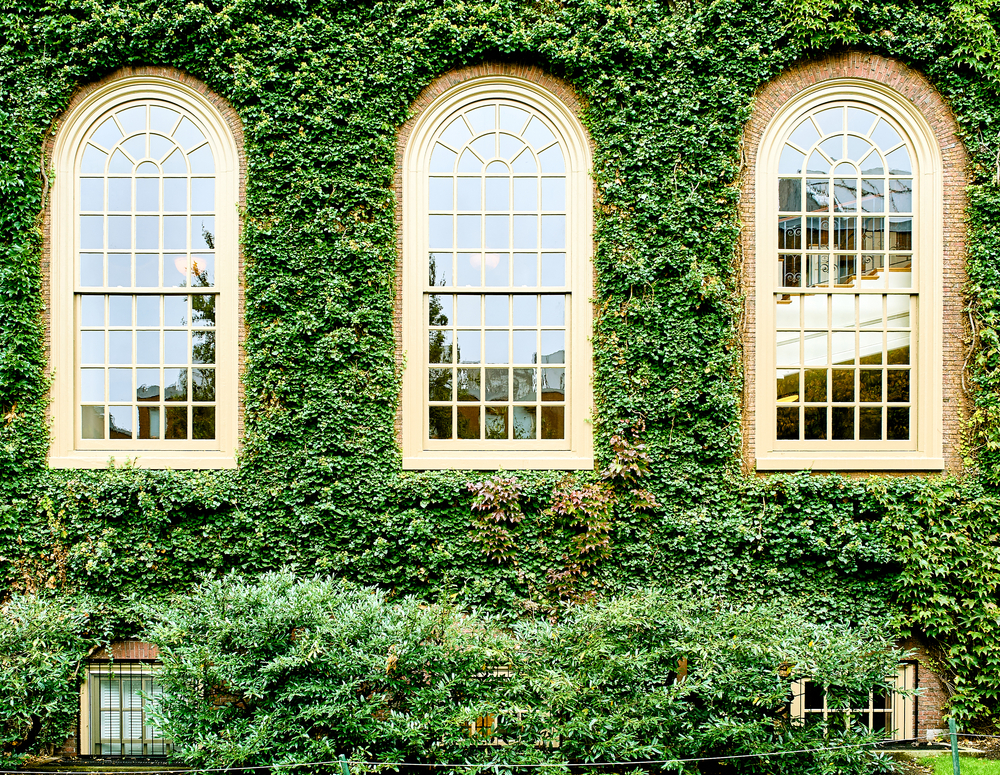Harvard, Yale, and Princeton are three of the richest universities on the planet. Harvard has an endowment of $53.2 billion dollars as of 2021. Yale has an endowment of $42.3 billion dollars, and Princeton has $37.7 billion in the bank. Despite being flush with cash and consistently breaking records for the lowest acceptance rates ever, these institutions do not seem interested in expanding enrollment, or providing more people access to an elite education.
Each of these universities have a checkered history of racism. Harvard’s law school can trace its origins to slave owners; Yale was founded by a slave trader; and Princeton’s first nine presidents owned slaves, in addition to penning letters describing its complicity in systemic racism. It seems clear that elite institutions have played a role in laundering racism, and have projected their moral failings onto everyone else.

These endowments are maintained by wealthy people who pass their share of the tax burden onto people significantly less affluent. For instance, more than half of New Haven’s jurisdiction is non-taxable. Public services cost money, and the reduction of the tax base shifts the cost away from the wealthy to poor inner-city New Haven-ites.
Yale has engaged in a crusade involving lawsuits and lobbying to prevent paying twenty-six times more in taxes than what they currently do. Princeton has also been caught in the tax hustle. In 2016, it ended up paying more than $18 million to settle a case when residents noticed a huge jump in their property tax bill and asked why. This doesn’t even get into the way that elite colleges receive exemptions from federal taxes, massive public research grants, and tax-free capital endowments.
Jordan Weissmann of Slate points out “normal hedge funds have to pay taxes on their earnings. Because it’s a nonprofit, Harvard doesn’t. And since bestowing tax exemptions is the same as spending cash from the government’s perspective, that means the American public effectively subsidizes Harvard’s moneymaking engine.”
Historically, elite schools became elite by excluding the undesirables, in effect, creating wealthy social networks. A recent study by Raj Chetty, John Friedman, Emmanuel Saez, Nicholas Turner, and Danny Yagan adds that the idea of elite higher education as an engine for upward mobility is wrong. Instead, top universities are largely closed to the poor and primarily help well-off students remain well-off. Instead of continuing to subsidize institutions that manufacture ‘prestige’ out of privilege, we should tax them.
These taxes need not be destructive. In fact, taxing endowments and property may remove inefficiencies in the market and appear to be Kaldor-Hicks efficient. Insofar as a property tax is a way of putting a price on land usage, providing tax exemptions to universities encourages them to use more land than would be socially optimal. In effect, raising the marginal cost of land for universities may decrease the marginal cost for others. Taxing the gains of endowments beyond a certain point may encourage endowments to focus more of their efforts on providing services for students by increasing the price of saving.
Conversations about reparations often center around the idea of moral culpability and rectifiability. Who’s at fault? Who benefits? The rent-seeking structure of America’s elite universities and their history of racism makes their culpability clear. At the very least, elite colleges no longer deserve special treatment, and certain forms of taxation may be welfare maximizing.
One thing better than giving back is paying your fair share. The money this raises can be reallocated to the communities surrounding these elite universities, many of which are in shambles. New Haven’s largest zip code is 46.05% Black. Philadelphia is 44% black. Giving money back to its rightful owners divests the wealthy of unfair advantages, while giving the city and by extension, its residents the ability to decide where the money ought to go.


READER COMMENTS
Thomas Lee Hutcheson
Mar 6 2022 at 10:14pm
NGO’s like universities should certainly pay property taxes which pay for services they enjoy. Why should this have anything todo with “reparations?”
Matthias
Mar 7 2022 at 12:49am
An interesting idea.
I don’t understand though, why communities who happen to be close to the elite universities in space would have a bigger claim on the largesse?
JFA
Mar 7 2022 at 7:18am
“Giving money back to its rightful owners”
There’s a lot that’s assumed in that statement.
robc
Mar 7 2022 at 9:04am
Single Land Tax with no exceptions.
And by “no”, I mean it. The Feds would have to pay the state portion of the SLT to Wyoming for Yellowstone, for example.
Capt. J Parker
Mar 8 2022 at 9:48am
My initial reaction to the headline “Let’s Pay For Reparations By Taxing Elite Colleges” was: Genius! But on further reflection one unintended consequence sure to occur is that at least some of the increased tax will be born by students who pay tuition at these universities. The students with the wealthiest parents will just pay the extra cost. Poor and middle class students will be hit the hardest.
Jason S.
Mar 8 2022 at 10:48am
Surely one should only have to pay reparations if one has violated rights, and one should pay those reparations to the victims of those rights violations. The author hasn’t done much, or anything, to show that these private colleges have violated rights, let alone that the reparations they would pay would go to the victims of those rights violations.
bb
Mar 9 2022 at 10:10am
Totally agree, and I would not limit it to the ultra-elite schools. The big state schools that teach tens of thousands of students per year provide a genuine public good. Schools like Harvard that have enrollments or only a few thousand students aren’t serving the public. It’s clear the only goal is to serve a small group of insiders and create barriers of entry to the club. I think this applies to most small private schools. We shouldn’t subsidize that.
I agree with the other commenters in that conflating this with reparations weakens/muddies the argument. However, I probably disagree with many of them in that I think some form of reparations is very warranted.
Good post.
Comments are closed.